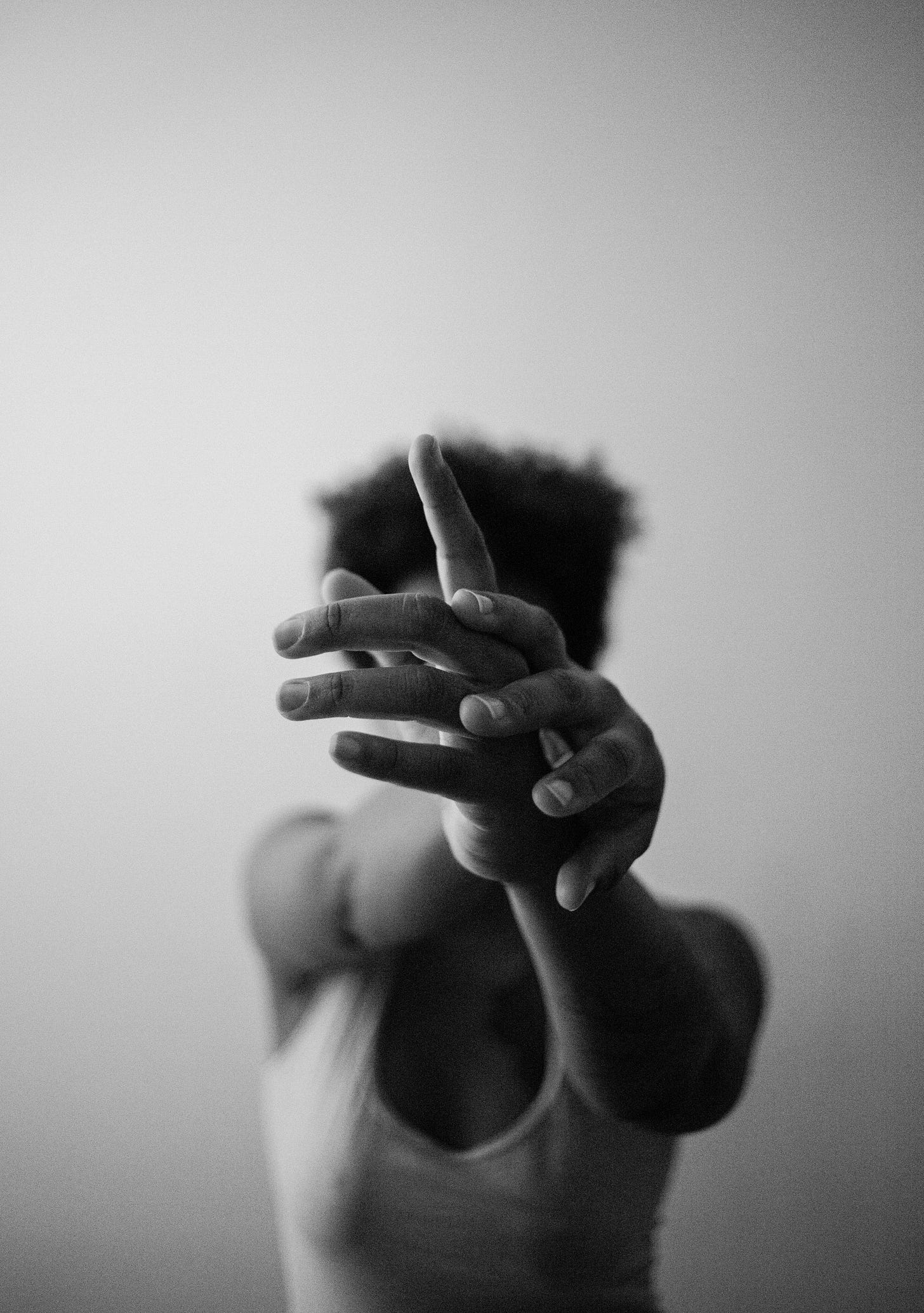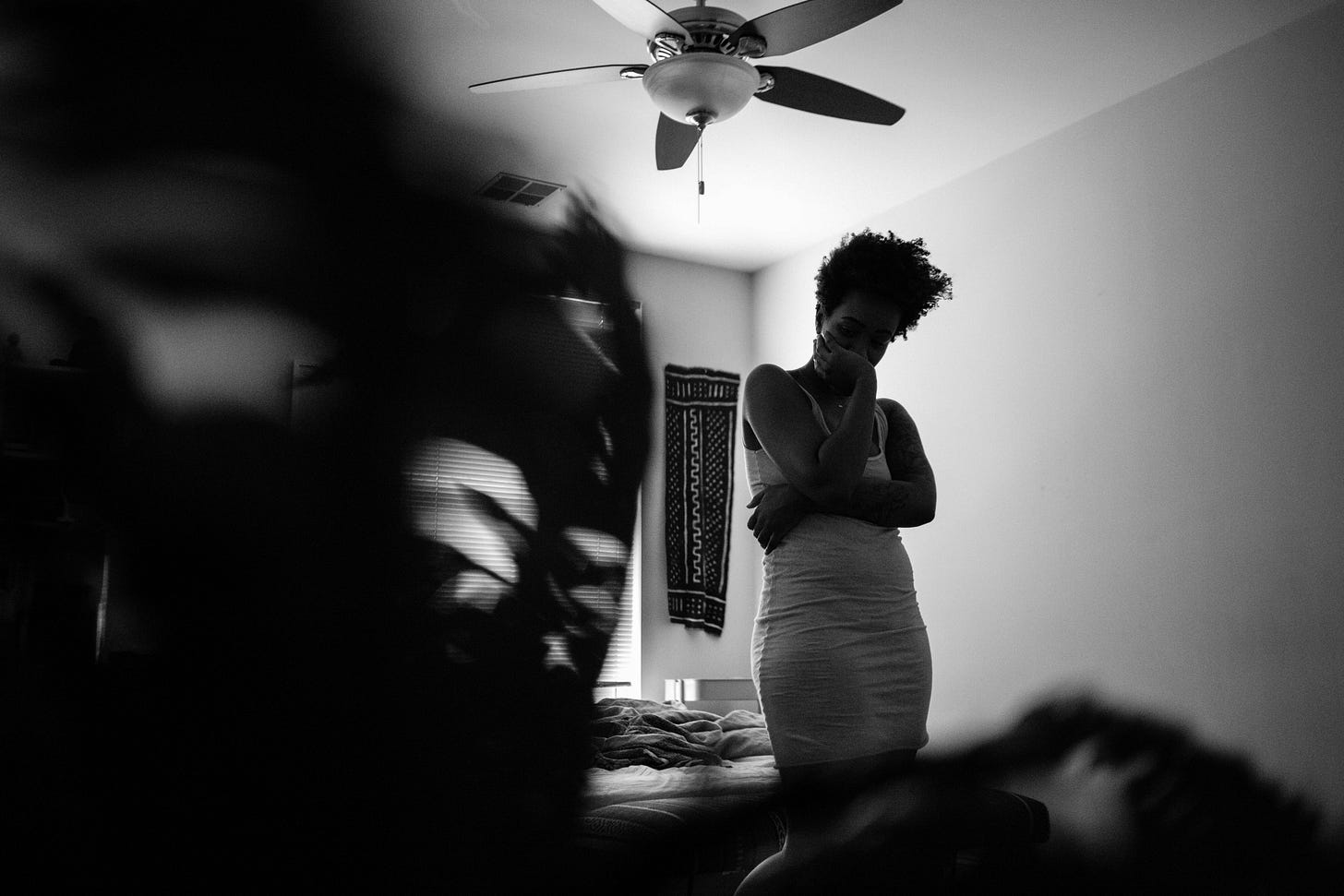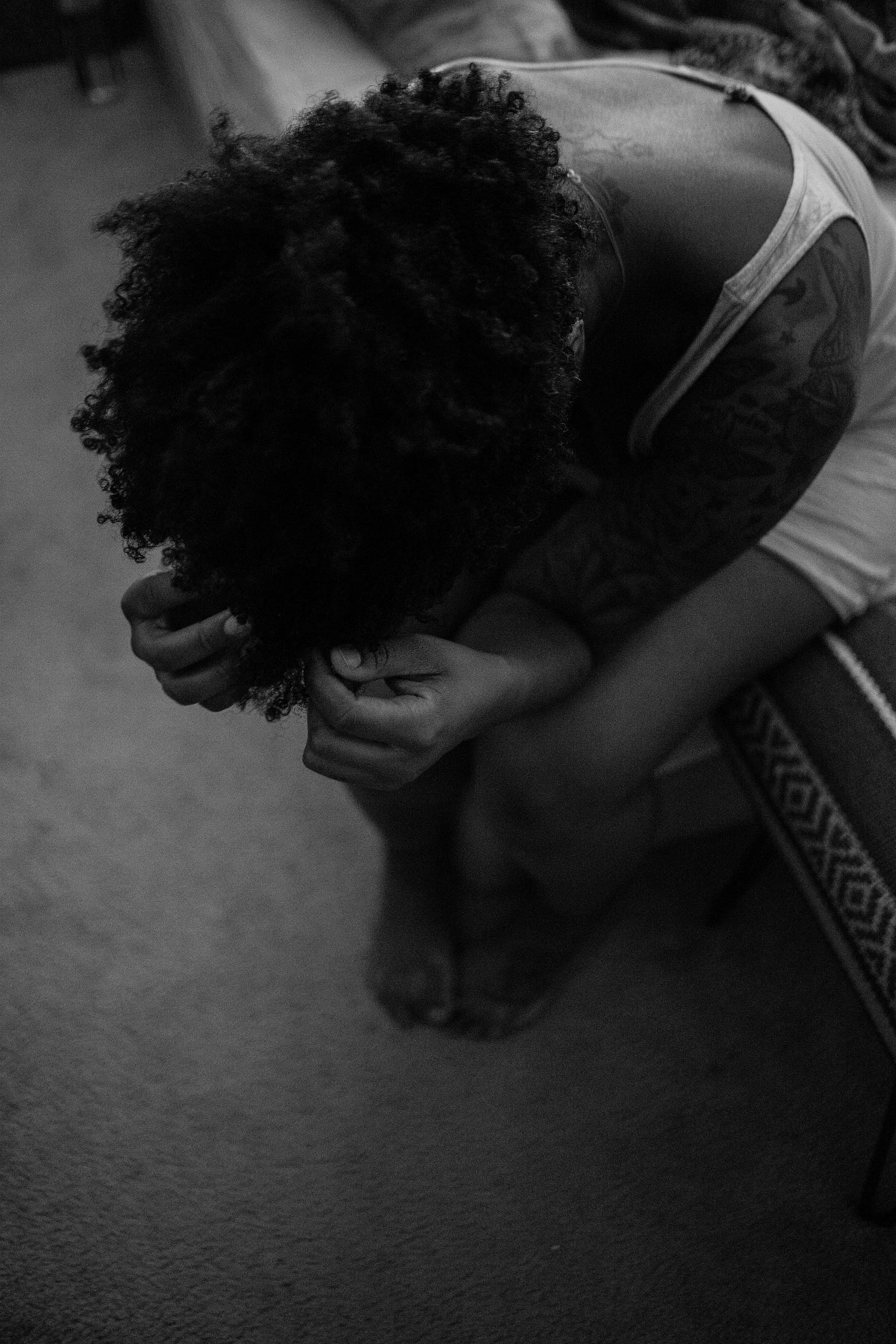Witnessing grief is like standing at the vast edge of the stormy ocean. Some days, you'll feel like you're drowning. On other days, you'll feel light and buoyant with hope. Grief can teach everyone it touches how to relinquish control and allow. How to welcome the salt of our tears. How to be held as each drop from our eyes washes over every tender spot in our hearts. How to simply be and let it do what it needs to do. No judgment. No rushing. No shame.
I am grateful for my grief, even after all it puts me through, because it teaches me how to hold myself.
The waves of our pain will crash over us, time and time again, as we change, heal, grow, and shed. We will question everything all at once, some days. And still, when the weight of sorrow threatens to pull us under, we manage to catch our breath, even if barely. It is there that we find what it means to be glorious and how it feels to be grounded in the possibility that hope offers.
For whoever needs this today, I want to invite you to soften amid each ebb and flow coming your way. Bear witness to your grief. I know that may feel like an enormous task, but being gracious with yourself during your moments of darkness will be the guiding light to offer solace, understanding, and healing in the face of your pain and loss. Holding space for your grief is an important step in the complex journey of our mourning.
To bear witness to our grief is to confront it head-on, to acknowledge its existence and its impact on our lives. To bear witness to our grief is to realize that it is trapped love entangled in our soul. To bear witness to our grief is an invitation e to explore the depths of our emotions rather than bury them beneath layers of our brokenness.
Grief requires us to step out of our comfort zone(s) and confront the things we prefer to avoid. But when we pay attention to the feelings and emotions at hand, the true significance of grief comes into focus—allowing us to see and exercise our power.
When we witness our suffering, we grant ourselves permission to feel, express, and recognize the validity of our truth.
In a society that often encourages the suppression of sadness, I am learning that acknowledging it can be a transformative and liberating experience. Holding myself through hurt, heartbreak, and loss tells me that my pain is real and deserving of my attention, even if it makes people lose their words or feel uncomfortable. As I wade through the murky waters of grief, I am reminded that my human emotions are valid, and my not-so-joyful moments in life matter, too.
The act of bearing witness to the grief we experience is a profound exercise in emotional release and self-preservation. We cannot hold it under our tongues forever. We must swallow it eventually. Grieving can be nourishing if and when we let it feed us. When we witness our grief—when we take it in—we allow the truth to surface.
The more I heal, the more I see that grief is a process. One that asks me to be intentional. It's not a destination. I will never arrive at the threshold of its door. And still, I am learning that healing often begins with trusting myself to explore the path before me. Trusting that I will not vanish into the depths of my darkness by looking at what's broken or aching or shattered. By allowing ourselves to grieve, we take the first steps on the journey towards acceptance and clarity. Acceptance does not erase the pain or diminish the significance of what's at hand. Rather, it allows us to integrate our grief into our lives, finding a way to move through it while [also] honoring exactly where we are today. Some things will always hurt. Being honest about this makes room in our lives for intentional self-soothing when we need to be cared for, loved on, and cradled with support.
Witnessing your grief is not an option. It's a necessity when navigating the complex terrain of being human. Of loving. Of losing. Of learning what it means to be alive.
Grieving is an act of courage.
It presents a trail of self-compassion to follow. It reminds us that we don't always have to be strong to be seen. We can soften. We can and will find joy again—and again and again. And for that, I am deeply grateful.
Sidenote: The photos in this essay were taken in 2017, after one of the most painful times in my life. The kind that I didn’t think I would make it through. Today, they popped up in my phone memories. I wanted to delete them but couldn’t for some reason. When I look at these images, I could cry, still. I can feel the knots in my stomach. The ache in my heart. The pain in my soul. I thought I would not make it through that season. A friend of mine encouraged me to get in front of her lens. The version of me in these photos could not imagine being the woman I am today. But I am here. I found joy after the pain. These photos remind me to hold the grief while also trusting the healing. One day, I will delete them, but not today.
Joy Work is almost full. I added 50 more spots. Registration is closing when it sells out. See you all next Sunday!










Alex, thank you! I lost my dad when I was seven and wasn’t allowed to grieve. I’ve been in therapy a long time but only about a month ago did I attend a grief support group. It was a revelation to connect with a woman who’d lost her mom as a kid. Sharing our grief in community is crucial to healing. I’m so glad you posted this!
It’s like you read my mind. I’m wanting to speak more openly about grief as it’s become a dear friend of mine the last few years as I’ve allowed myself to dive in and FEEL. It’s not a box to check, like “ok, I’ve done grief now, I can move on.” Grief is a part of being ALIVE, a spiral path that we will revisit more than a few times. I hope/pray that we can all learn to shine light on the gifts that grief brings, taking note of its arrival as an invitation to experience more of the fullness of life.